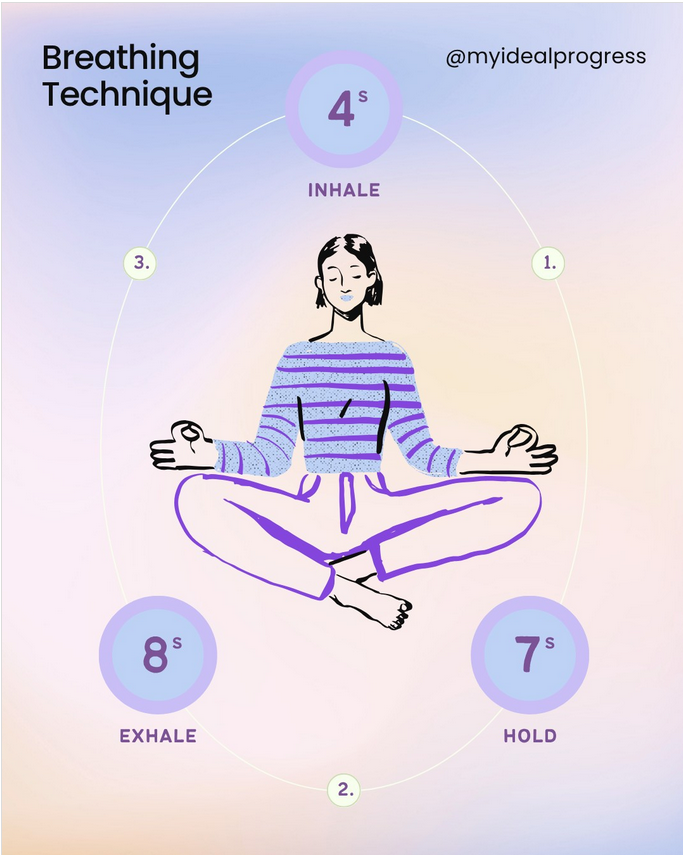5 Science-Backed Ways to Take Control of Stress
Practical tools to build resilience in daily life
When stress feels overwhelming, small consistent actions can create powerful change. These expert-recommended strategies help you regain balance and strengthen your stress resilience.
4, 7, 8 breathing
Follow the circle to practice this technique.
Most people think stress management means doing more… more routines, more habits, more “self-care.” In reality, it’s about choosing a few things that help your mind and body breathe again. Here are five areas that make the biggest impact.
1. Master Your Body’s Relaxation Response
4-7-8 breathing: Inhale for 4 seconds → hold for 7 → exhale for 8.
Belly breathing: Hands on stomach/chest; aim for the belly to rise first.
Morning sunlight: A 10-minute walk can help regulate serotonin and lift your mood.
Deep breathing signals your parasympathetic nervous system to slow everything down—calm often follows within minutes.
2. Create a Stress-Proof Routine
✔ Movement snacks: Five minutes of dancing, stretching, or climbing stairs each hour.
✔ Digital boundaries: Set predictable “off” times for news and social media (7–8 PM works well).
✔ Sleep anchors: Keep your bedtime and wake time steady, even on weekends.
Treat these habits like appointments you don’t cancel. Your body relies on this consistency.
3. Reframe Your Mental Script
Gratitude check-ins: Write down three specific things you’re thankful for.
Thought checking: When the self-criticism hits, ask: “Would I say this to someone I care about?”
Victory log: Track tiny wins—pausing before stress-eating, taking a break when you usually wouldn’t, etc.
Supportive self-talk is linked with better immunity and longer lifespan. The way you speak to yourself matters.
4. Build Your Stress-Busting Toolkit
For immediate relief:
→ 5-4-3-2-1 grounding: 5 things you see, 4 you feel, 3 you hear, 2 you smell, 1 you taste.
→ Progressive muscle relaxation: Gently tense and release each muscle group from head to toe.
For long-term resilience:
→ Me-time blocks: Set aside 15 minutes daily for quiet or hobbies.
→ Support map: Identify three go-to people—one who listens, one who gives advice, one who’s great for distraction.
5. Redesign Your Environment
Stress-free zones: Keep certain areas phone-free (the bedroom or dining table).
Nourishment stations: Put easy, healthy snacks where you’ll actually see them.
Calm corners: A simple chair, blanket, and playlist can create an instant reset space.
Your environment shapes about 40% of daily stress levels—small changes go far.
Start today:
Choose one strategy from each section and jot down how it affects you. Your stress journal will help you notice patterns, triggers, and what actually works. Stress isn’t something you eliminate; it’s something you learn to carry with more ease.


